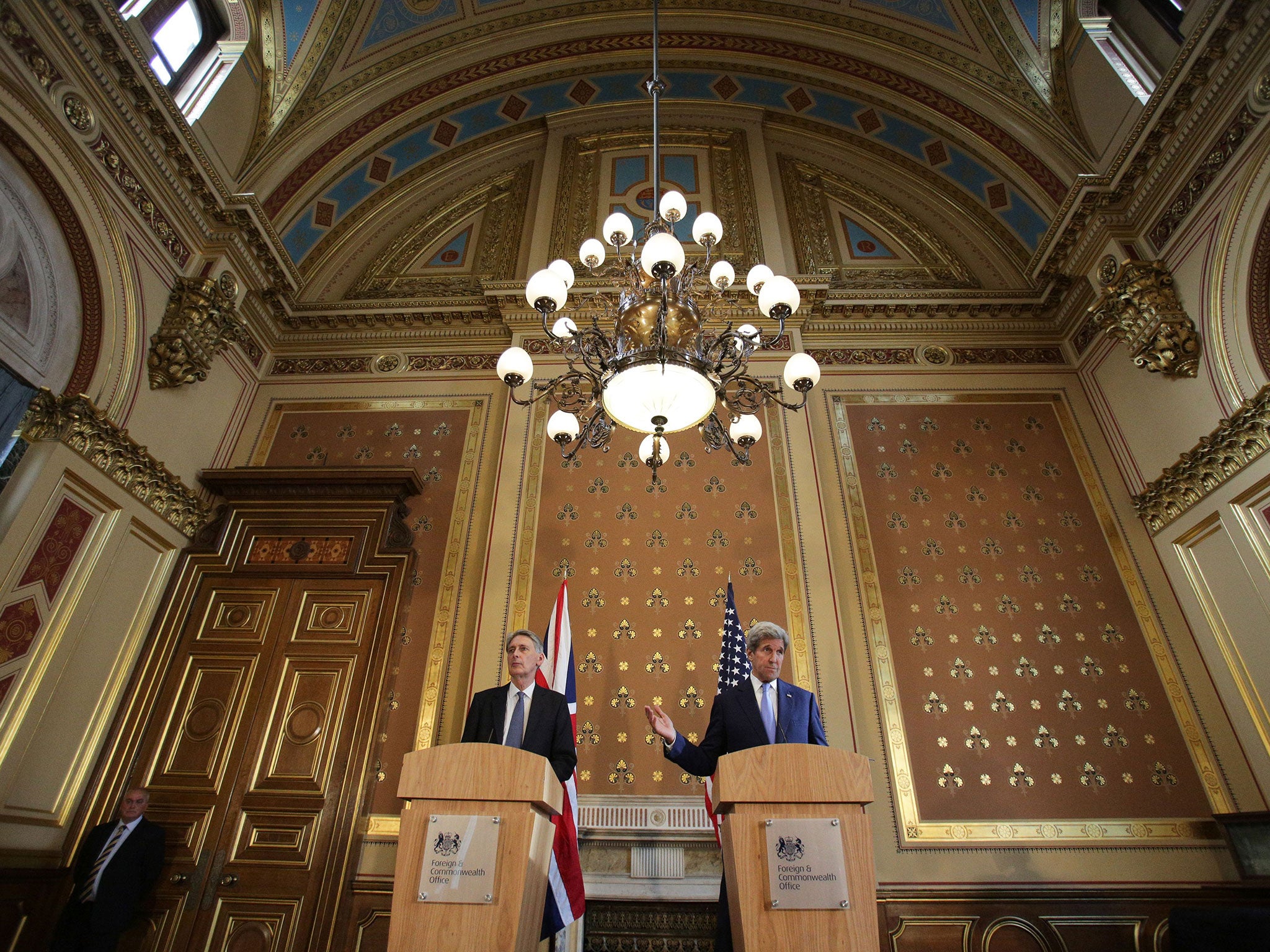EU Referendum: John Kerry warns Britain of 'cutting off your nose to spite your face' in Brexit
The US Secretary of State, speaking in London, acknowledged that the result of the referendum had been a surprise and not one he and the US administration had wanted

Britain and the European Union must not “cut off one’s nose to spite one’s face” in the negotiations over Brexit, John Kerry has warned. The US Secretary of State stressed that “revengeful premises” and talks driven by “anger and frustration” needs to be avoided in the days ahead.
Reflection on where Brexit leaves Britain on the world stage, Mr Kerry stated “Do I think that Britain’s role has somehow been diminished? No, I think it’s been changed. That doesn’t mean we won’t miss that voice within the context of the European Union. I personally will regret that Britain is not going to be at that table when there is an US-EU dialogue.”
The US Secretary of State, speaking in London, acknowledged that the result of the referendum had been a surprise and not one he and the US administration had wanted. Barack Obama had said that the UK would be “in the back of the queue” when it came to making trade deals with Washington if it left the European Union: an intervention by a foreign head of state which was resented by some in this country.
Mr Kerry maintained that “the President’s concern was a valid concern”. But, going forward into talks, he added that leaders of both Britain and the EU “ have the ability and responsibility to restore certainty by making wise choices on the days ahead. That means choices that to every degree possible are not aimed at retribution, not aimed at anger, but rather thought through in a way that brings people together.
“If, on the other hand, there is a willingness to cut off your nose to spite your face, I have a sneaking suspicion that is going to be felt far and wide and I don’t think that’s good for anyone.”
The US foreign secretary was carrying out shuttle diplomacy in Europe following the British referendum. In London he held talks with prime minister David Cameron and foreign secretary Philip Hammond. Earlier, after meeting European Commission President Jean-Claude Juncker, Mr Kerry had said: "It is absolutely essential that we stay focused on how, in this transitional period, nobody loses their head, nobody goes off half-cocked, people don't start ginning up scatterbrained or revengeful premises. It is absolutely essential that we stay focused on how, in this transitional period, nobody loses their head, nobody goes off half-cocked, people don't start ginning up scatterbrained or revengeful premises,"
Mr Hammond, standing beside Mr Kerry at the Foreign Office, said he understood the unhappiness within the European Union at what had happened. "The wound is quite raw. We are only 96 hours in and it will take some time for the wound to settle down," he said. "I understand the reaction of some of our European Union partners because there is a genuine fear about the contagion that could arise from the result of this referendum.
"Something is stirring politically. We have seen it in various countries across Europe in the form of surges of support for right-wing parties and we have seen it here in this referendum. It is something we will have to deal with.
Join our commenting forum
Join thought-provoking conversations, follow other Independent readers and see their replies
Comments
Bookmark popover
Removed from bookmarks